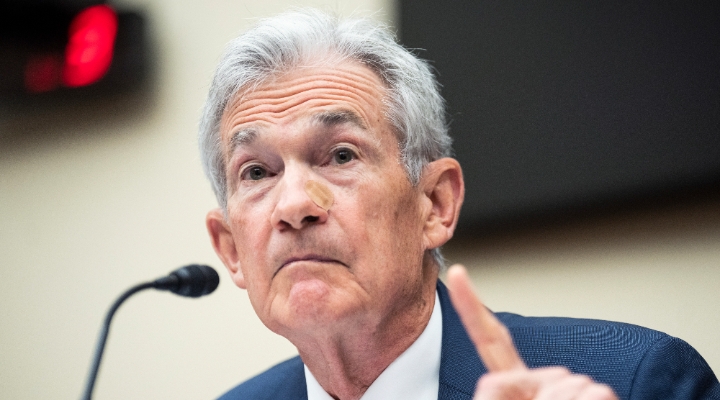
No rate cut is expected at Thursday's European Central Bank meeting, and the focus remains on the governing council's meeting in September for the next policy move, after the bank cut rates by 0.25 percentage at its June meeting.
Analysts anticipate that two more rate cuts of 0.25 percentage points each are on the table this year, in September and December. Financial markets are currently pricing in 0.4 percentage points in total rate cuts until year-end, leaving some uncertainty whether the bank will impose a second cut in December.
"The ECB has clearly signalled its preference to make interest rate decisions at forecast meetings, i.e. in September and December, and not in July, October or January", Konstantin Veit, executive vice president and portfolio manager at Pimco, told Morningstar by phone on July 11.
"Inflation is not yet where the ECB wants it to be, but I believe the ECB is of the opinion that a deposit facility rate of above 3% is still clearly restrictive", he adds. So even if the bank were to lower rates twice this year, it would still consider rates to be sufficiently restrictive in the current inflation environment.
In a recent Reuters poll of 85 economists between July 4-11, all predicted the ECB will keep interest rates unchanged on July 18. More than 80% of respondents expected it to cut the deposit rate twice more this year, in September and December, which would take it down to 3.25%.
In it's June meeting, the bank cut rates to:
• Main refinancing rate: 4.25%, down from 4.50%
• Marginal lending facility rate: 4.50%, down from 4.75%
• Deposit facility rate: 3.75%, down from 4.00%
This was the first cut of the main refinancing rate and marginal lending facility in eight years. The deposit facility rate was last reduced in 2019.
Consumer prices in the eurozone increased by 2.5% in June year on year, down from 2.6% in May, but higher than economists' expectations of a 2.4% rise. Core inflation, which shows prices without energy and food costs, came in 2.9% over a year earlier, the same level as in May, but higher than the 2.7% rate seen in April.
Rate Cuts Expected at 0.25 Percentage Point Steps
Pimco's Veit adds that he anticipates cuts to come at conventional 0.25 percentage point steps, given the amount of uncertainty about the eurozone economy and about the next steps of the US Federal Reserve.
The ECB can cut rates independently of the Fed, but the point is that inflation is highly correlated globally-- if it turns out the Fed can't cut because inflation proves to be more sticky than anticipated, it is unlikely that the ECB has no inflation problem, he said.
Morningstar strategist Michael Field also believes the ECB will take a cautious approach to lowering rates. "The last thing the ECB would want to do is to have to raise rates if next month's inflation numbers flare up again. So the cure is to not be rushed into decisions", he said. "After the bank lowered rates just in June, another rate cut this week would be too soon."
DWS's Europe economist Ulrike Kastens told Morningstar by phone on July 10 that she does not expect the ECB to announce any cuts at its next meeting, and that she does not expect any comments on potential policy moves in September. "As there are no new projections on growth and inflation, there should be no changes in communication: President Christine Lagarde will again stress that the council will act data dependent, and that decisions are made on a meeting-to-meeting basis." DWS also expects cuts at 0.25 percentage points each in September and December. "Moderate wage data in the second quarter of 2024 should allow a further rate cut in September", Kastens added.
How Low Will the ECB Cut Interest Rates?
If analysts' consensus proves accurate, the main refinancing and deposit facility rates would stand at 3.75% and 3.25%, respectively, at the end of the year. But they do not expect that to be the end of the rate cutting cycle. Currently, the market prices in a terminal deposit facility rate of 2.5%, implying that three more 0.25 percentage point cuts might be on the horizon in 2025.
However, the ECB has communicated that it sees the neutral, terminal rate at 2%.
"At the moment the market is pricing in a terminal rate of 2.5%, and the question is whether that is realistic or not", Pimco's Veit said. "I think the 2.5% is well above most estimates for the neutral rate, which the ECB sees at around 2%. We read this as the market expecting inflation to be more persistent than expected, therefore pricing in a higher interest rate."
How Will Interest Rate Cuts Affect Markets?
Equity markets tend to rise on anticipated rate cuts. In bond markets, falling interest rates mean lower yields, which pushes bond prices higher. Lower rates also make existing bonds, and particularly those already issued during a period of high rates, more attractive for yields.
Meanwhile cash savings rates on bank accounts will likely decrease, to the detriment of savers. Borrowers, by contrast, stand to benefit from lower rates as consumer debt and mortgages become cheaper.
In its latest Economic Bulletin, the ECB said that financing costs have plateaued at restrictive levels. The average interest rates on new loans to firms and on new mortgages were unchanged in April compared to the previous month, at 5.2% and 3.8% respectively.











.jpg)















